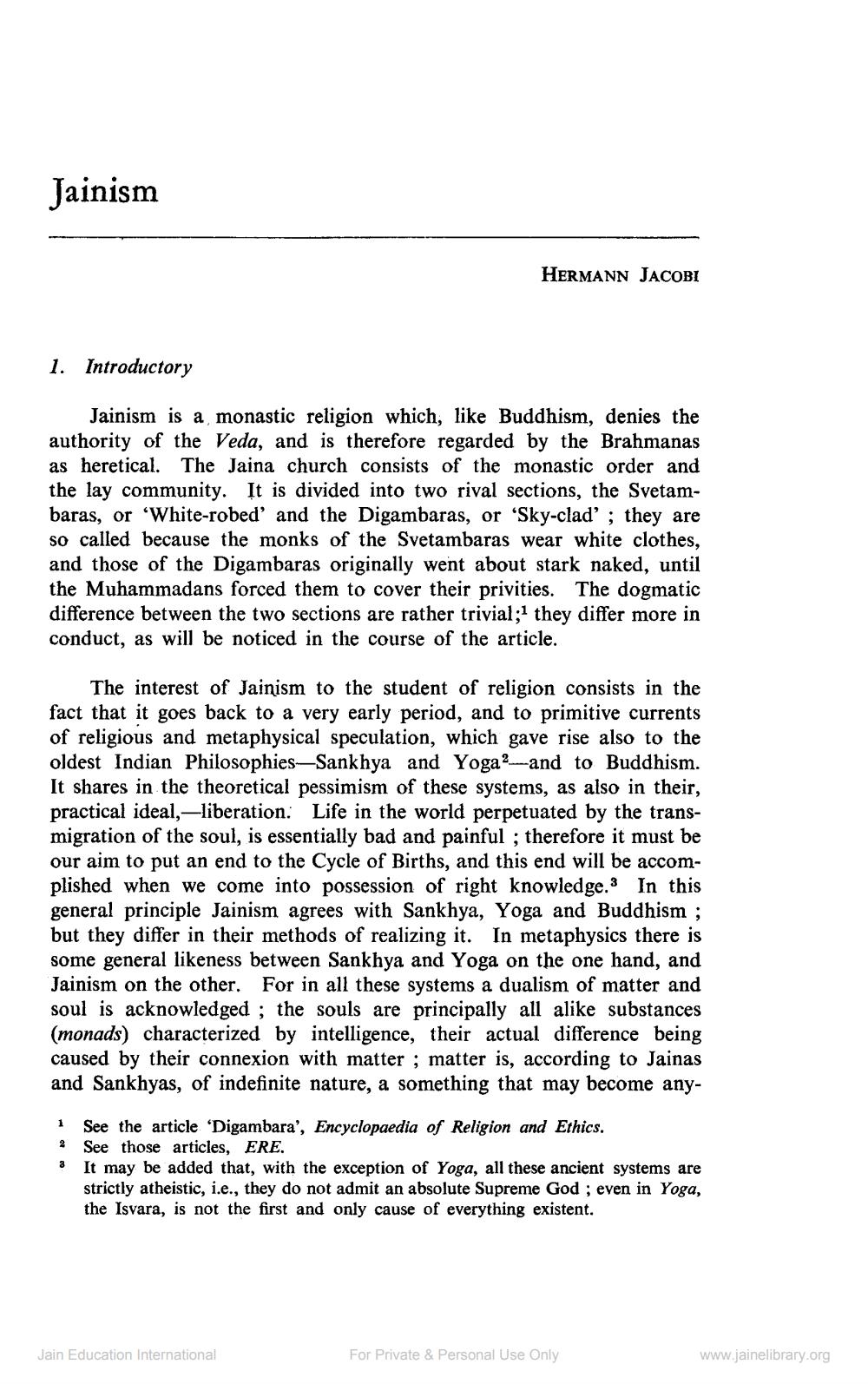________________
Jainism
1. Introductory
Jainism is a monastic religion which, like Buddhism, denies the authority of the Veda, and is therefore regarded by the Brahmanas as heretical. The Jaina church consists of the monastic order and the lay community. It is divided into two rival sections, the Svetambaras, or 'White-robed' and the Digambaras, or 'Sky-clad'; they are so called because the monks of the Svetambaras wear white clothes, and those of the Digambaras originally went about stark naked, until the Muhammadans forced them to cover their privities. The dogmatic difference between the two sections are rather trivial;1 they differ more in conduct, as will be noticed in the course of the article.
HERMANN JACOBI
The interest of Jainism to the student of religion consists in the fact that it goes back to a very early period, and to primitive currents of religious and metaphysical speculation, which gave rise also to the oldest Indian Philosophies-Sankhya and Yoga2-and to Buddhism. It shares in the theoretical pessimism of these systems, as also in their, practical ideal,-liberation. Life in the world perpetuated by the transmigration of the soul, is essentially bad and painful; therefore it must be our aim to put an end to the Cycle of Births, and this end will be accomplished when we come into possession of right knowledge.3 In this general principle Jainism agrees with Sankhya, Yoga and Buddhism; but they differ in their methods of realizing it. In metaphysics there is some general likeness between Sankhya and Yoga on the one hand, and Jainism on the other. For in all these systems a dualism of matter and soul is acknowledged; the souls are principally all alike substances (monads) characterized by intelligence, their actual difference being caused by their connexion with matter; matter is, according to Jainas and Sankhyas, of indefinite nature, a something that may become any
1 See the article 'Digambara', Encyclopaedia of Religion and Ethics.
2 See those articles, ERE.
It may be added that, with the exception of Yoga, all these ancient systems are strictly atheistic, i.e., they do not admit an absolute Supreme God; even in Yoga, the Isvara, is not the first and only cause of everything existent.
3
Jain Education International
For Private & Personal Use Only
www.jainelibrary.org




